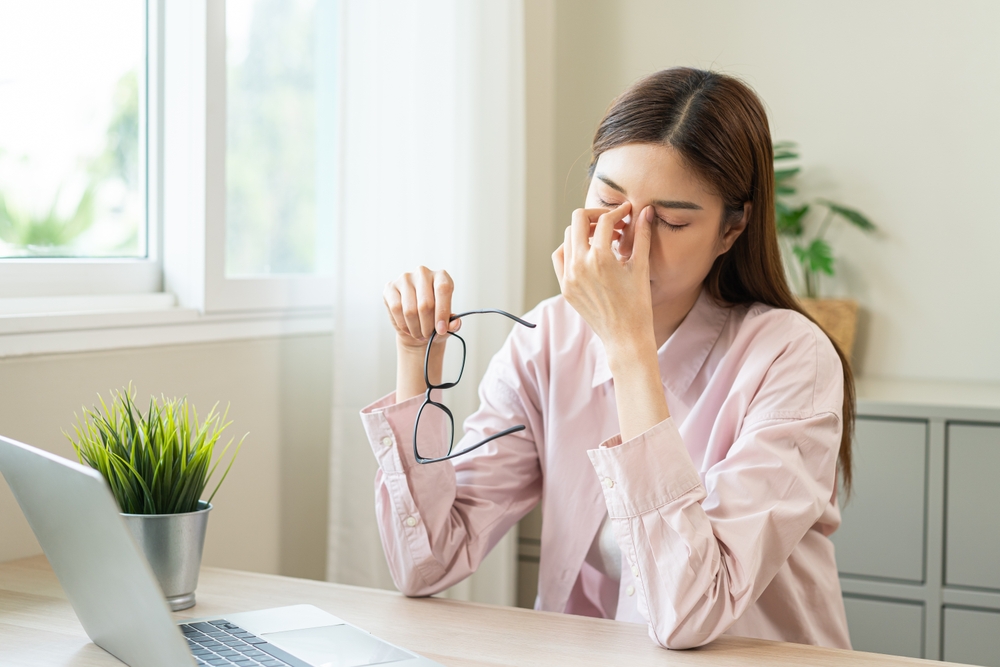
Dry eye is a common condition that occurs when your eyes don’t produce enough tears or when the quality of your tears isn’t sufficient to keep your eyes lubricated. It can cause discomfort, irritation, redness, and even blurry vision. Fortunately, adopting a few simple habits can make a big difference in preventing dry eye and maintaining comfortable vision throughout the day.
Stay Hydrated
Your tear film depends on adequate hydration. Make sure to drink enough water daily - about 8 glasses for most adults - to support healthy tear production. Dehydration can reduce tear volume and worsen dryness, especially in heated or air-conditioned environments.
Take Breaks from Screens
Prolonged computer, phone, or tablet use often leads to a reduced blink rate, which allows tears to evaporate more quickly. Follow the 20-20-20 rule: every 20 minutes, look at something 20 feet away for 20 seconds to give your eyes a rest. Remember to blink fully and frequently to spread tears evenly across your eyes.
Adjust Your Environment
Low humidity, wind, and air conditioning can all dry out your eyes. Use a humidifier indoors, especially during the winter months, and avoid direct air blowing into your eyes. When outdoors, wear wraparound sunglasses to shield your eyes from wind and UV exposure.
Include Omega-3s in Your Diet
Foods rich in omega-3 fatty acids - such as salmon, flaxseed, walnuts, and chia seeds - can help support healthy tear production and reduce inflammation that contributes to dry eye. Talk to your optometrist about whether omega-3 supplements might be beneficial for you.
Remove Makeup Thoroughly
Leaving makeup on overnight or not cleaning the eyelid margins properly can block the oil glands (meibomian glands) along your eyelids, which play a crucial role in preventing tear evaporation. Use gentle, hypoallergenic makeup removers and consider an eyelid cleanser designed for sensitive eyes.
Avoid Smoking and Secondhand Smoke
Cigarette smoke irritates the eyes and disrupts tear production, increasing your risk of chronic dryness. If you smoke, quitting can greatly benefit not only your eye health but also your overall well-being.
When to See Your Optometrist
If you experience persistent dryness, burning, or a gritty sensation that doesn’t improve with lifestyle changes, it’s time to see your optometrist. Chronic dry eye can be linked to underlying conditions such as meibomian gland dysfunction (MGD) or blepharitis, which require professional evaluation and treatment. Your optometrist can perform specialized tests to determine the cause of your symptoms and recommend advanced treatment options such as in-office eyelid therapy or medicated eye drops.
Get Personalized Dry Eye Treatment in Winchester, MA
Small changes in your daily habits can go a long way in preventing dry eye and keeping your vision clear and comfortable. However, if dryness persists, don’t ignore it - getting professional care can help prevent long-term discomfort or damage.
Schedule a consultation with Winchester Optical to address your dry eye symptoms and get personalized treatment. Visit our office in Winchester, Massachusetts, or call (781) 214-3990 to book an appointment today.





